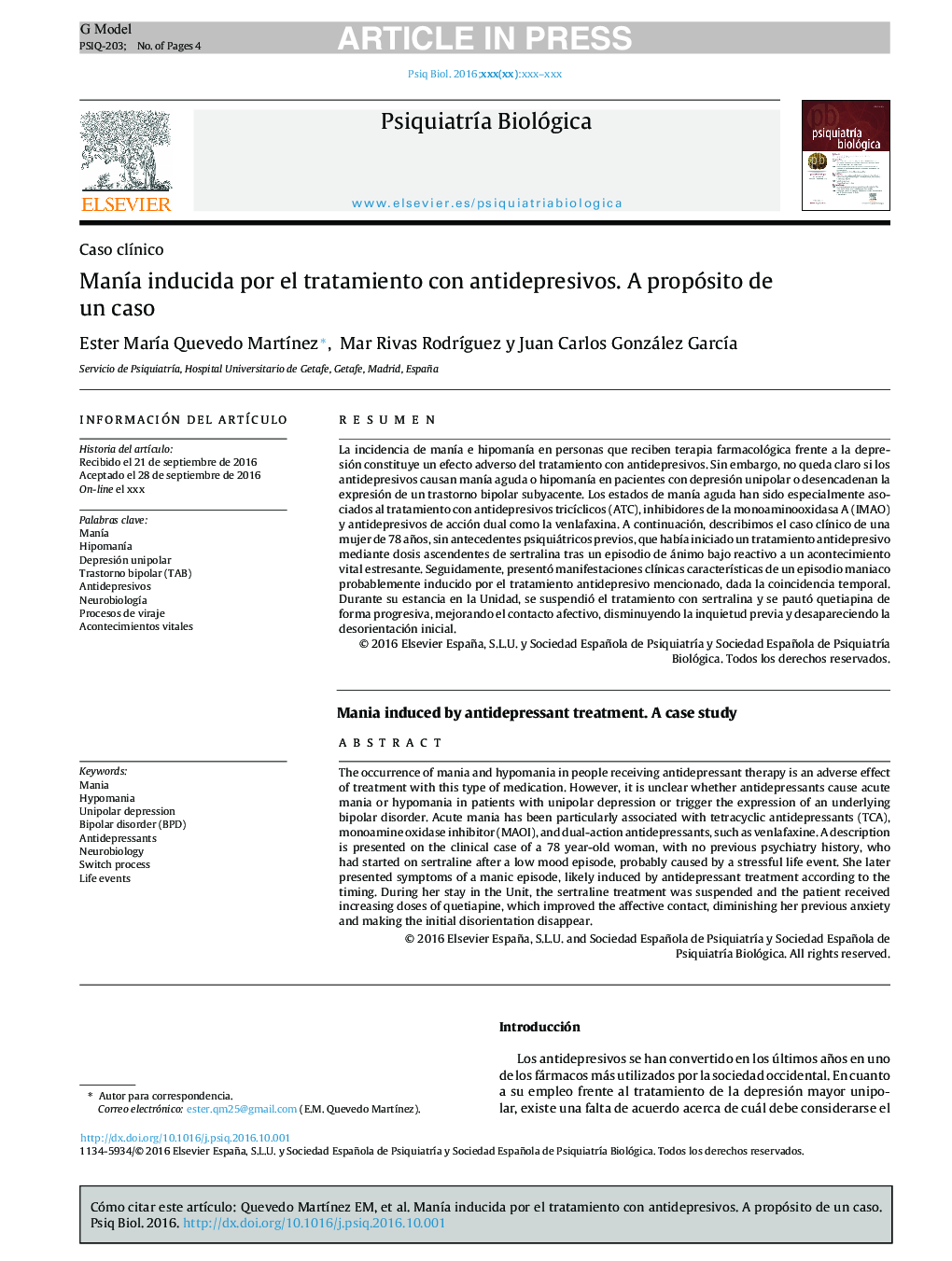| Article ID | Journal | Published Year | Pages | File Type |
|---|---|---|---|---|
| 5722511 | Psiquiatría Biológica | 2017 | 4 Pages |
Abstract
The occurrence of mania and hypomania in people receiving antidepressant therapy is an adverse effect of treatment with this type of medication. However, it is unclear whether antidepressants cause acute mania or hypomania in patients with unipolar depression or trigger the expression of an underlying bipolar disorder. Acute mania has been particularly associated with tetracyclic antidepressants (TCA), monoamine oxidase inhibitor (MAOI), and dual-action antidepressants, such as venlafaxine. A description is presented on the clinical case of a 78 year-old woman, with no previous psychiatry history, who had started on sertraline after a low mood episode, probably caused by a stressful life event. She later presented symptoms of a manic episode, likely induced by antidepressant treatment according to the timing. During her stay in the Unit, the sertraline treatment was suspended and the patient received increasing doses of quetiapine, which improved the affective contact, diminishing her previous anxiety and making the initial disorientation disappear.
Keywords
Related Topics
Health Sciences
Medicine and Dentistry
Psychiatry and Mental Health
Authors
Ester MarÃa Quevedo MartÃnez, Mar Rivas RodrÃguez, Juan Carlos González GarcÃa,
